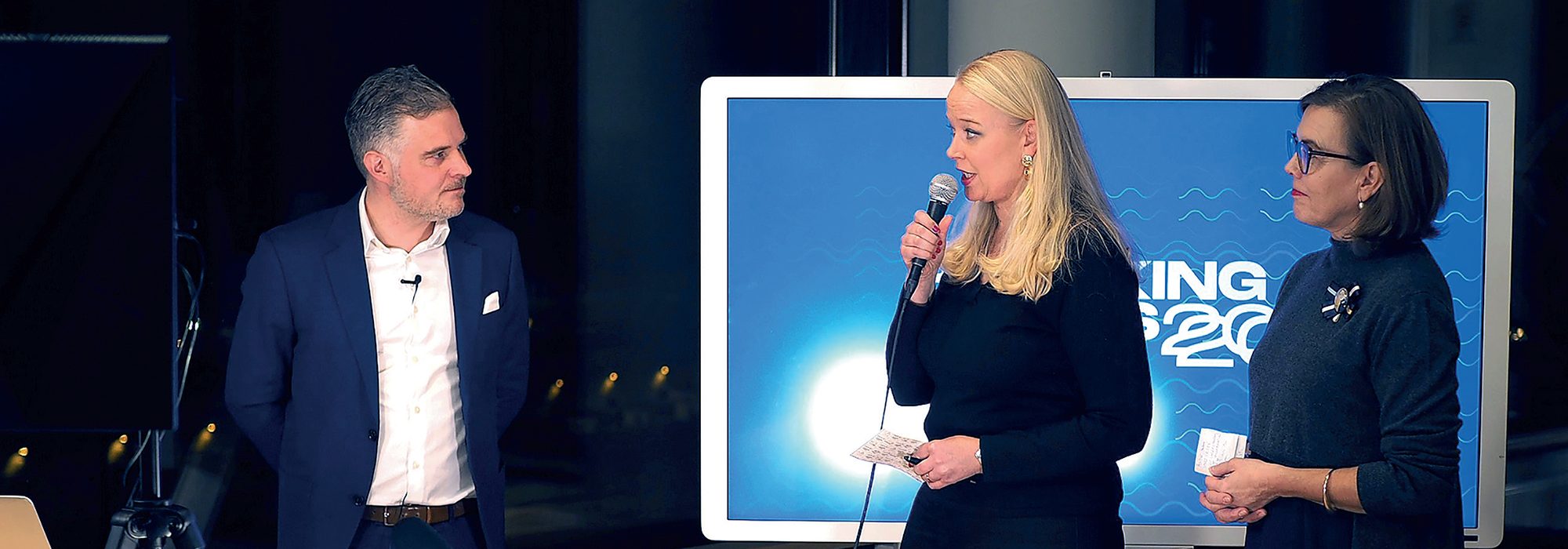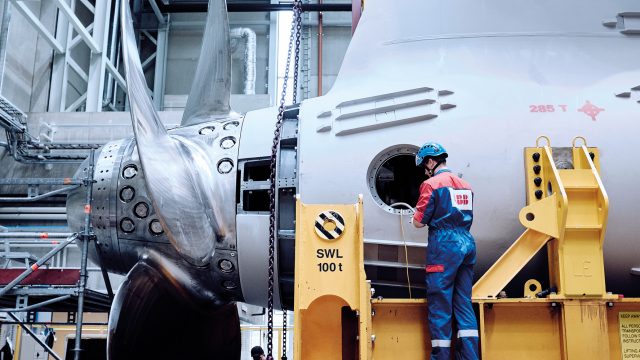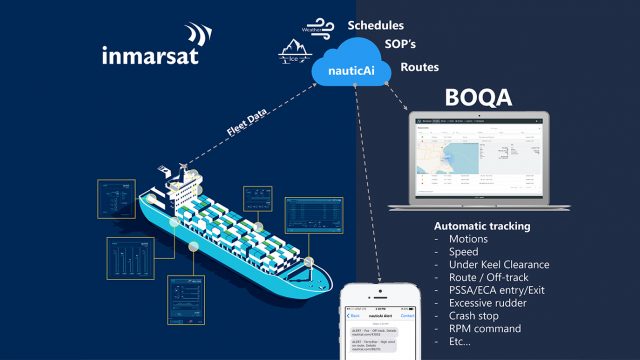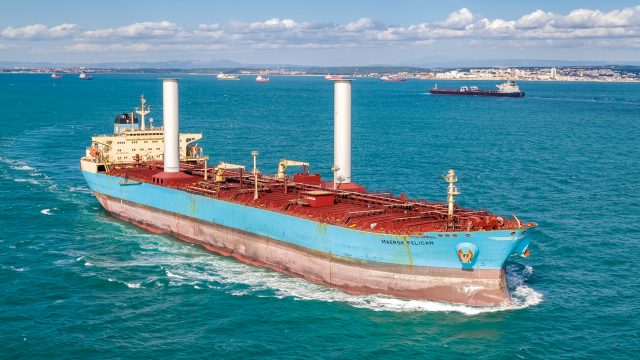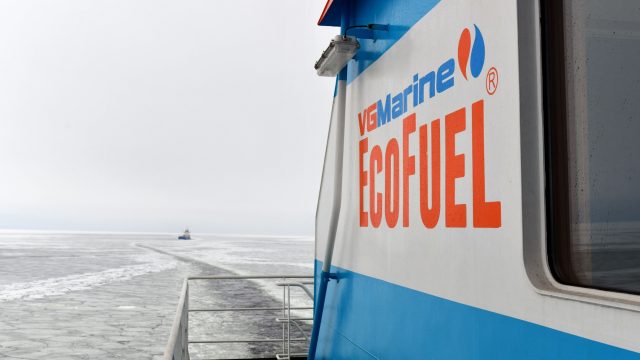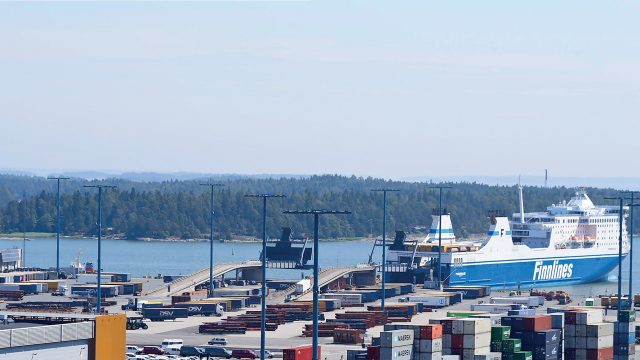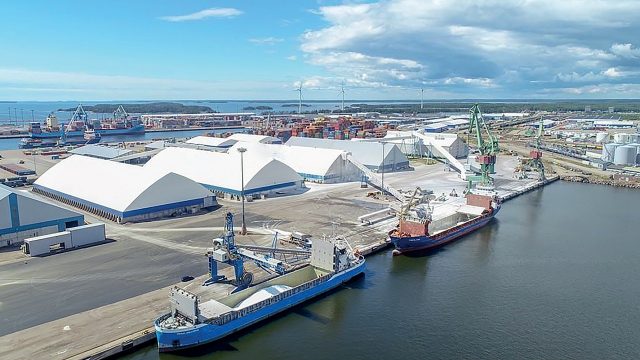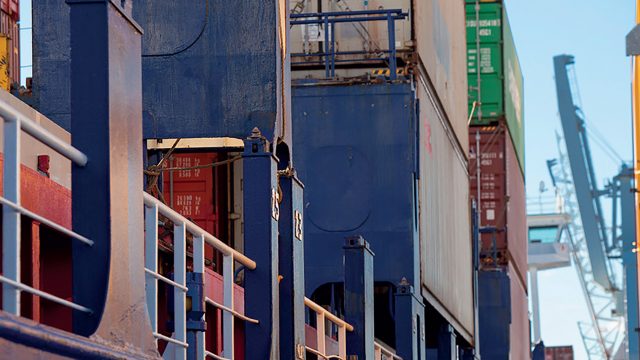Breaking Waves 2020 was held as online event in Helsinki. All three keynote speakers emphasized collaboration in smart recovery of pandemic crisis. Martin Stopford, shipping economist and President of Clarkson Research, reminded how pandemic has caused lot of uncertainty. Clarkson stated that the recession caused by the pandemic could be anything from mild to severe but what-
ever the outcome, in longer term the fleet must be rebuilt. Zero-carbon ships will be needed in future and this demands good strategy, great investments and cooperation between stakeholders, shippers and builders.
Wärtsilä Corporation’s President of Marine Power/EVP Roger Holm and Magda Kopczynska of European Commission’s DG MOVE also emphasized need for technical development. Kopczynska noted that we will see more effective and environmentally conscious transport system in future. However, she recommended not to commit to certain alternative fuel technology yet as further testing is still needed.
More open dialogue
Breaking Waves gathered 200 participants from all over Europe. On interactive workshops participants stated that the pandemic had hugely affected the business. On short term pandemic was seen to have a negative impact but new technologies will drive strongly on medium and long term.
The effects on cooperation between maritime players was seen positively. There is more willingness to exchange information and big companies are more open to remote meetings. The discourse between stakeholders has also accelerated and dialogue is more open and supportive. Lack of live meetings and events were seen hindrances for cooperation.
Sauli Eloranta, Professor of Practice at VTT, noted how more challenging business environment enhances cooperation.
“Public funding has been boosted especially for COVID-19 recovery actions. Confederation of Finnish Industries has a COVID recovery programme (Digital Game Changers) to recover through growth,” Eloranta pointed out.
Pandemic was also seen as an accelerator for digitalization and development of automation. Eloranta predicted that increased use of digital platforms for remote work, shopping, education and mobility will lead to greater globalisation of all services that are online.
Regulation worries
It was also predicted that logistic needs of customers will change in future. They will require full-chain digitalized solutions and it will be more commonplace to have online tracking in cargo. Also the demand on door-to-door multimodal services grows. When prediciting the situation of major business areas in 2023, participants saw most positive growth in global freight. Worst situation was predicted for growth in global passenger traffic. This means that shipping companies that are dependent on passenger transport are forced to rethink their business models.
One major worry for the workshop participants seemed to be the regulation. Hopes were raised that maritime regulation at international level should keep up with technical development.
Some participants felt that the world of regulations acts too slowly to the urgent crisis. Furthermore, industries cannot plan investments as future regulations are pending.
Companies seek solutions together
On panel discussion Santiago Garcia-Mila (Port of Barcelona) reminded how pandemic functioned as catalyst. Lot of routes have been shut down and slim operations return to market. Piet Opstaele (Port of Antwerp) stated that there’s rapid development of new technologies in horizon and steps towards more contactless supply chain will be taken by acceleration of automation in ports.
The new world will be an opportunity for us.
Sauli Eloranta (VTT) also emphasized power of digitalisation. However, he reminded that technology is already there and the pandemic is just the catalyst. “We will just take the existing technology in use. The new world will be much more digital and it is an opportunity for us.” Karin Orsel (MF Shipping Group) noted how crisis has been a big wake up call. It has caused the companies to reach out for each other and seek solutions together. Björn Blomqvist (Rederi Ab Eckerö) had similar thoughts.
“Crisis has allowed us to be vulnerable. We are all weak and we need help. This has made it normal to ask for help and by asking you also get positive reactions.”
Spirit in the air
Annaleena Mäkilä, Managing Director of Finnish Port Association, and Tiina Tuurnala, CEO of the Finnish Shipowners’ Association, were happy with the online version of Breaking Waves. The spirit was achieved despite the lack of face-to-face contacts.
Mäkilä thought that there was interesting discussion about future of the accelerating digitalization in ports. She also noted that even though the current crisis is seen to be short the competition in maritime industry will get tougher. Both Mäkilä and Tuurnala emphasized that in the crisis EU must secure that Europe stays competitive in global market.
“The best solution would be global regulation. EU could then concentrate in supporting acceleration of fleet renewal and innovations,” Tuurnala remarked.

